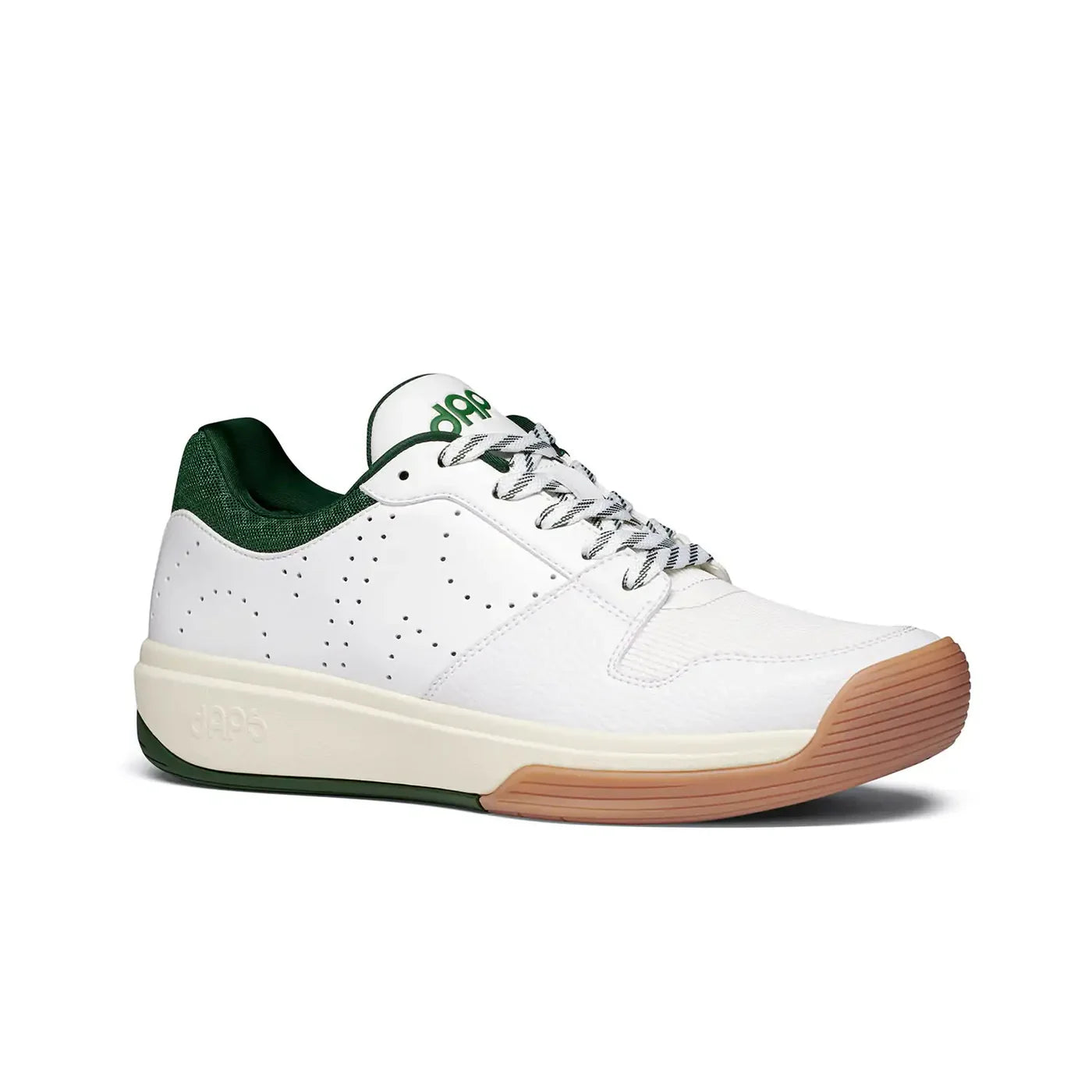Everything Seniors Should Know About Playing Pickleball
Last Edited
Oct 22 2024
Category
News
Even though the younger crowd is finally taking over as the fastest-growing pickleball demographic, it was seniors who made the sport what it is today.
But for seniors, pickleball offers a unique combination of accessibility, low-impact exercise, and a fun social atmosphere.
Whether you're curious about the game or looking for a new way to stay active, here’s everything seniors need to know about pickleball.
Why Pickleball is Perfect for Seniors
Pickleball combines elements of tennis, badminton, and ping pong, but the smaller court size and slower ball speed make it more approachable for older adults.
Unlike traditional racket sports, pickleball is low-impact, meaning it’s easier on the joints, making it ideal for people with knee, hip, or ankle issues.
Here’s why seniors are flocking to pickleball:
1. Low-Impact, Joint-Friendly Exercise
Pickleball’s smaller court and slower pace mean there’s less running involved compared to sports like tennis. This significantly reduces stress on your knees, hips, and ankles. The underhand serve and soft ball ensure less strain on your muscles and tendons, making it a great option for seniors with physical limitations.
2. Cardiovascular and Muscle Strength Benefits
Don’t be fooled by its gentle nature—pickleball still offers a solid aerobic workout. Quick movements, short sprints, and frequent rallies keep your heart rate up. It helps improve cardiovascular health, lowering your risk of conditions like hypertension, stroke, and heart disease. In addition, the movements involved in swinging the paddle and chasing shots engage muscles in your legs, core, and upper body, building strength over time.
3. Improved Balance and Coordination
As we age, maintaining balance and coordination becomes crucial to avoid falls and injuries. Pickleball’s emphasis on hand-eye coordination and quick footwork helps sharpen reflexes and improve balance, making everyday movements safer and smoother.
4. Mental Health Perks: Social Connection and Mood Boost
Staying active is vital for mental health, especially for seniors. Pickleball encourages social interaction, camaraderie, and teamwork, helping combat feelings of isolation and depression. Plus, exercise releases endorphins, natural mood boosters that reduce anxiety and promote overall well-being.
5. Increased Commitment to Staying Active
Unlike solitary exercises, pickleball’s fun and social nature encourages regular participation. Whether you're meeting new people at the local court or playing with friends, you’re more likely to stick with pickleball than a more routine workout.
How to Get Started with Pickleball as a Senior
Ready to pick up a paddle? Here’s everything you need to know about jumping into pickleball.
1. Find a Senior-Friendly Pickleball Group
One of the best ways to start is by joining a local pickleball group. Many communities, YMCAs, and recreation centers offer pickleball leagues and meetups specifically for seniors. These groups often focus on beginner-friendly games, so you can ease into the sport at your own pace.
To find a group near you, search online or check with your local community center.
2. Start Slow and Ease Into the Game
Even though pickleball is low-impact, it’s still important to start slow, especially if you haven’t been active in a while. Start with shorter games, focusing on getting used to the rules and the flow of the game. Don’t push your limits too quickly—take breaks as needed and listen to your body.
3. Invest in the Right Gear
Proper Shoes: One of the most important pieces of equipment is your shoes. Invest in a good pair of court shoes with solid ankle support to avoid falls or slips. Avoid wearing barefoot-style shoes, sandals, or Crocs, as they lack the stability needed for quick movements on the court.
Eye Protection: While not mandatory, wearing sports goggles can protect your eyes from accidental hits from the ball or paddle. Several serious injuries have occurred when players were struck in the face, so it’s better to be safe than sorry.
Paddle and Ball: Most local courts will provide paddles and balls, but if you’re serious about playing regularly, consider investing in your own lightweight paddle for better control.
4. Warm-Up and Stay Hydrated
Always start your game with a warm-up. Light stretching or a brisk walk will help loosen up your muscles and prepare your body for movement.
Staying hydrated is equally important—bring plenty of water, especially if you’re playing outdoors. Seniors are more susceptible to dehydration, so take regular water breaks between matches.
Common Pickleball Injuries and How to Avoid Them
Pickleball may be low-impact, but like any sport, it comes with potential risks, especially if you’re not careful. Here are some common pickleball injuries and tips to prevent them:
1. Avoid Running Backward
One of the most frequent causes of injury on the pickleball court is running backward to chase a lob. When you backpedal, you risk tripping or losing balance, leading to falls or strains.
To avoid this, always turn your body fully to face the direction of the ball before running forward. This keeps your balance and vision in check, helping you avoid accidents.
2. Wear Proper Shoes to Prevent Falls
Footwear can make or break your experience on the court. Wearing shoes with poor support increases the risk of slips, falls, and twisted ankles.
Always choose well-cushioned court shoes with good traction to keep you stable during quick movements. Avoid everyday shoes like sandals or casual sneakers that don’t offer enough ankle support.
3. Watch Out for Obstacles on the Court
Poor court awareness is another common cause of injuries. Tripping over balls, chairs, or other obstacles like baby carriers or benches can lead to serious falls. Always keep your space clear, and be mindful of your surroundings.
4. Don’t Overexert Yourself
It’s easy to get caught up in the excitement of the game, but seniors should always know their limits.
Overexertion can lead to fatigue, dehydration, or even more severe conditions like heart attacks or strokes. If you feel dizzy, short of breath, or overheated, take a break and sit out until you’re feeling better.
Safety Tips for Seniors on the Pickleball Court
Pickleball is a safe sport for seniors when played with the right precautions. Here are a few more safety tips to keep in mind:
Stay aware of your partners: Collisions with partners or nearby objects, like nets or benches, can cause serious injuries. Always communicate with your teammate and keep your space clear.
Use proper form: When hitting the ball, avoid overextending or swinging too hard.
Using controlled, measured movements reduces strain on your body and prevents injury.
Keep an eye on the ball: Balls can travel faster than you think! Always watch where the ball is headed, and avoid situations where your paddle or a ball could hit your partner.
Pickleball for Seniors—More Than Just a Game
Pickleball offers seniors a fun, low-impact way to stay physically active, mentally sharp, and socially connected.
Whether you’re looking to improve your heart health, boost your mood, or make new friends, pickleball has something for everyone.
With the right precautions—like wearing proper shoes, warming up, and staying hydrated—you can enjoy the game safely for years to come.













